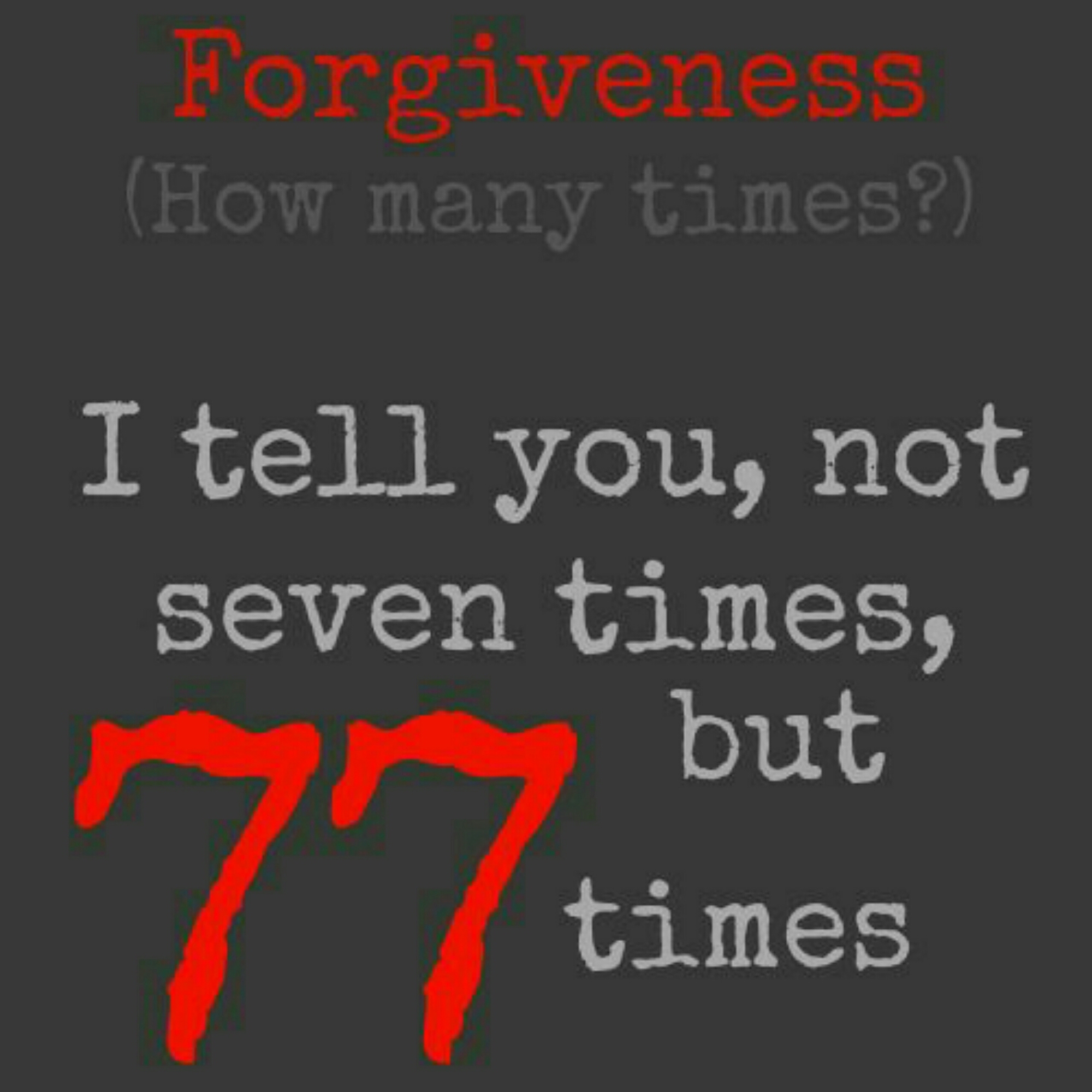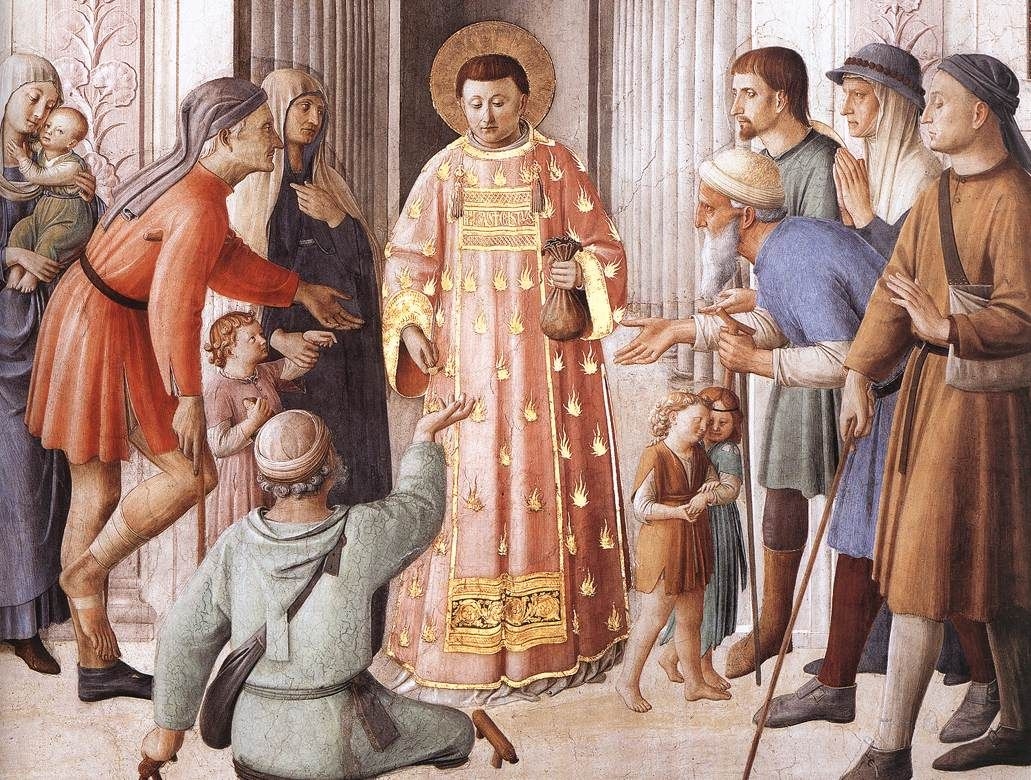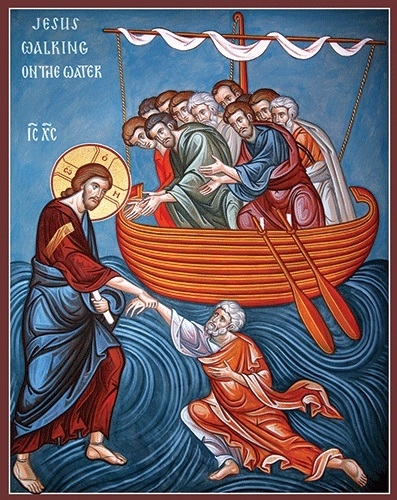These reflections are a result of more than 40 years of ministry as a Roman Catholic priest. Most of these years I spent in the Diocese of Charlotte which covers Western North Carolina. Now I am retired, and live in Medellín, Colombia where I continue to serve as a priest in the Archdiocese of Medellín.

Peter approached Jesus and asked him, “Lord, if my brother sins against me, how often must I forgive him? As many as seven times?” Jesus answered, “I say to you, not seven times but seventy-seven times. (Mt 18:21-22)
For stingy people like us, Peter asks the right question: “How often must i forgive, as many as seven times?” But no one is prepared for the Lord’s reply: “Not seven times but seventy-seven times!”

Then the glory of the LORD left the threshold of the temple and rested upon the cherubim. These lifted their wings, and I saw them rise from the earth, the wheels rising along with them. They stood at the entrance of the eastern gate of the Lord’s house, and the glory of the God of Israel was up above them. Then the cherubim lifted their wings, and the wheels went along with them, while up above them was the glory of the God of Israel. (Ezekiel 10:18-22)
The summer of the prophets continues with the prophet Ezekiel. In the Scriptures, Ezekiel’s strange visions are only topped by those of the Book of Revelation. But the visions from both books have the same purpose—to present of message of hope and salvation to people who are suffering. For Ezekiel, the people are in exile, having been defeated. For the Book of Revelation, Christian communities are experiencing terrible persecution. Perhaps in our own troubled times, these ancient visions can bring us new hope in the “glory of the Lord.”

The disciples approached Jesus and said, “Who is the greatest in the Kingdom of heaven?” He called a child over, placed it in their midst, and said, “Amen, I say to you, unless you turn and become like children, you will not enter the Kingdom of heaven. Whoever becomes humble like this child is the greatest in the Kingdom of heaven. (Mt 18 1-4)
What is greatness? Is it power, success, money, possessions? Clare of Assisi heard Francis preaching about the Poor Christ and left everything to follow the humble way of poverty.

Jesus said to his disciples: “Amen, amen, I say to you, unless a grain of wheat falls to the ground and dies, it remains just a grain of wheat; but if it dies, it produces much fruit. Whoever loves his life loses it, and whoever hates his life in this world will preserve it for eternal life. Whoever serves me must follow me, and where I am, there also will my servant be. The Father will honor whoever serves me.” (Jn 12:24-26)
As the arch-deacon of the Church of Rome, Lawrence would have been the next pope after Saint Sixtus. But when Sixtus and the other six deacons were martyred, Lawrence was arrested. Knowing that the deacons were in charge of the charity of the church, the magistrate ordered Lawrence to bring in the treasure of the church. Lawrence asked for a few days to accomplish the task . . . and after having given everything to the poor, he brought some of them in to the court and declared, “Here is the treasure of the church.” For his impudence, Lawrence was roasted alive. In church art, Lawrence is usually pictured with a gridiron. His story still lives on in the church.

When the disciples saw him walking on the sea they were terrified. “It is a ghost,” they said, and they cried out in fear. At once Jesus spoke to them, “Take courage, it is I; do not be afraid.” Peter said to him in reply, “Lord, if it is you, command me to come to you on the water.” He said, “Come.” Peter got out of the boat and began to walk on the water toward Jesus. But when he saw how strong the wind was he became frightened; and, beginning to sink, he cried out, “Lord, save me!” Immediately Jesus stretched out his hand and caught Peter, and said to him, “O you of little faith, why did you doubt?” After they got into the boat, the wind died down. Those who were in the boat did him homage, saying, “Truly, you are the Son of God.” (Mt 14:26-33)
“O you of little faith . . . “ we will soon see the contrast with the upcoming “Rocky” scene (You are Peter and upon this rock . . . ) in Matthew 16:13-20. I’m always grateful for Peter. He usually puts his foot in his mouth or even sinks like a rock like in today’s gospel. But Peter has the sense to call out, “Lord, save me!” and the Lord stretches out a hand and catches him and puts him back in the boat. Perhaps a good lesson for all of us.



